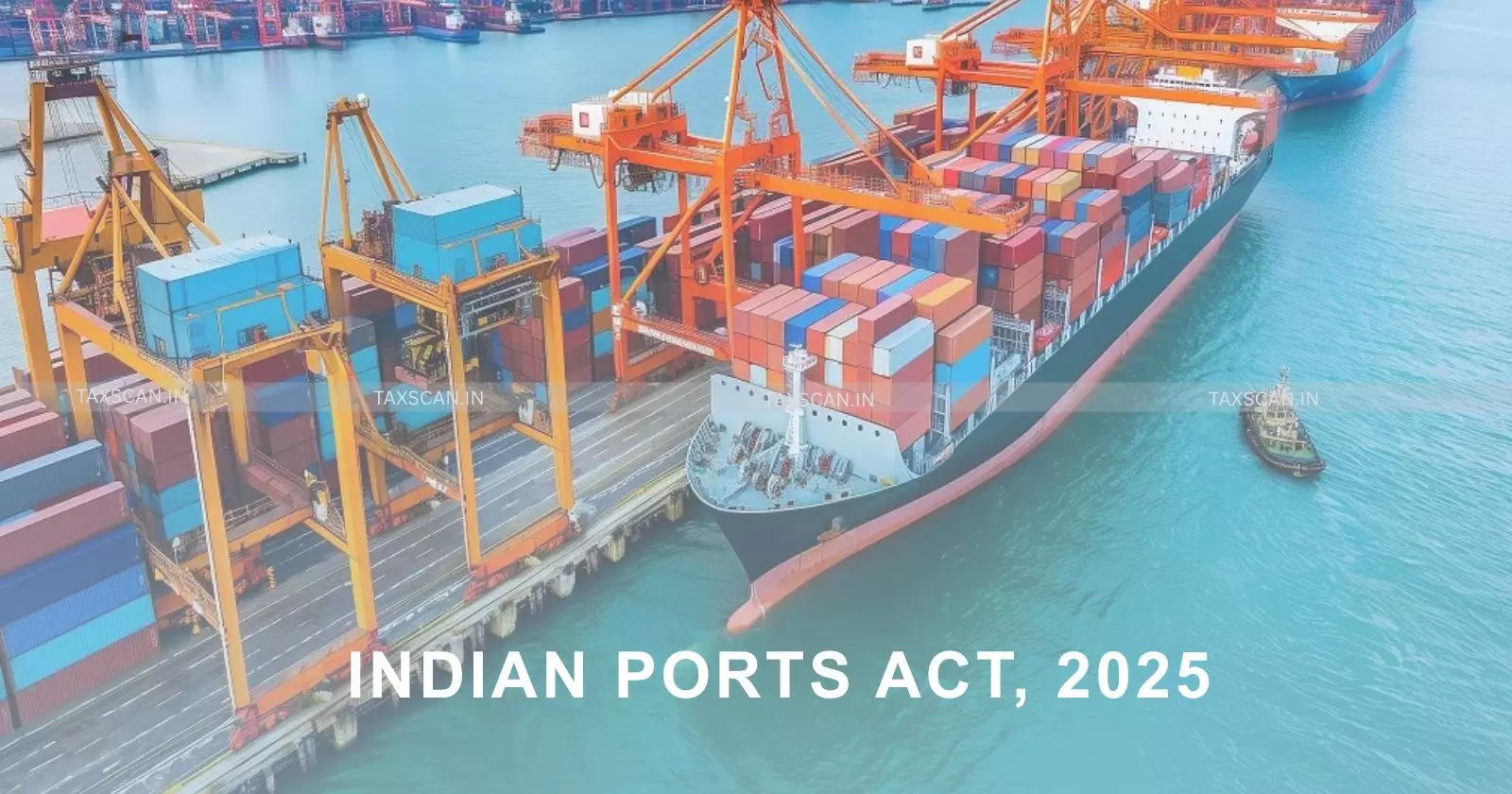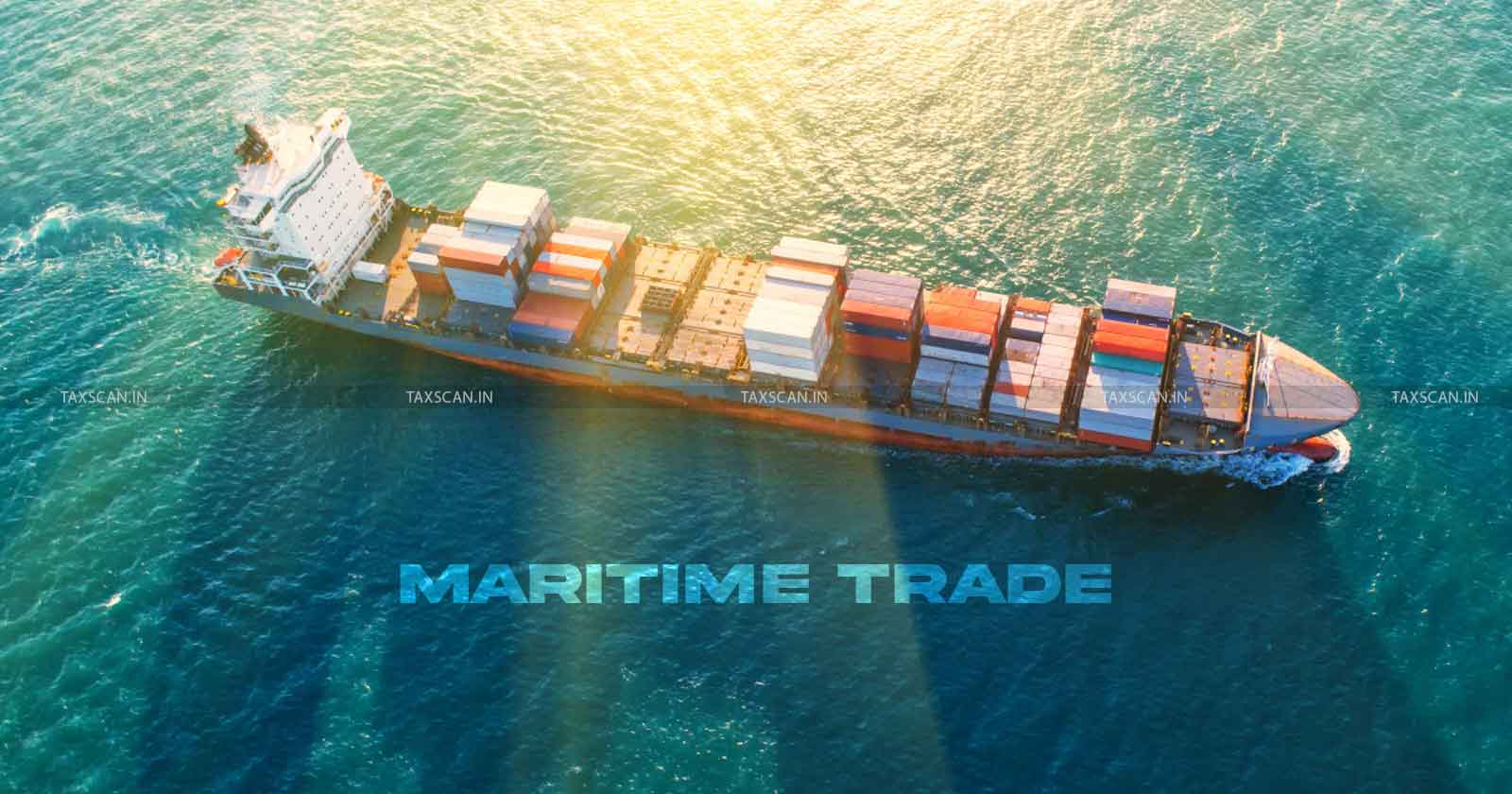Indian Ports Act, 2025: Repealing Colonial Law, Modern Tariff Framework and Enhancing Maritime Governance
Through the new Act, India replaces the 1908 statute enacted during the time of colonial rule.

India enacted The Indian Ports Act, 2025 in August, repealing the age-old Indian Ports Act of 1908 to establish a more modern legal and institutional framework for India’s port sector.
The latest legislation brings together different heads under a common legislation - stretching out to port law, uniform tariff regulation, environmental and safety norms, all while having in place, procedures to strengthen the cooperation between the Centre and coastal states.
 Also Read:Centre Notifies The Carriage of Goods By Sea Act, 2025: Key Changes for Maritime Trade [Read Act]
Also Read:Centre Notifies The Carriage of Goods By Sea Act, 2025: Key Changes for Maritime Trade [Read Act]
Under the new Act, the Maritime State Development Council (MSDC) becomes a statutory consultative body. The MSDC shall coordinate between the central government and States and provide advice on national port strategy, suggest norms for transparency in tariff computation, guide data-filing standards and also help in port-to-port connectivity planning.
As per the new Act, each coastal state is required to either formally recognise its existing State Maritime Board or establish one within a period of six months from the enactment of the Act. The State Boards will regulate non-major ports within their jurisdiction, handle licensing, development, tariff-setting and enforce rules pertaining to safety and environment in the sector.
Want a deeper insight into the Income Tax Bill, 2025? Click here
The Act further defines and formalises powers to set the tariffs applicable at the ports. At major ports, tariffs will be set either by their Port Authority Boards or by the board of directors if the port is handled by a corporate organization. For non-major ports, tariff setting lies with the State Maritime Boards or their authorized concessionaires.
The Act further mandates that the port tariff set by the relevant authorities are to be electronically published to ensure transparency to users and investors.
The 2025 Act has also reworked the modus for dispute resolution. Every State must form a Dispute Resolution Committee to settle disagreements among non-major ports, concessionaires, users and service providers. Appeals against the decision of the Dispute Resolution Committees shall be entertained by the jurisdictional High Courts within each State; no such appeals shall be triable by civil court.
Additionally, the Act also allows for arbitration or other alternate dispute resolution methods where parties are in agreement.
In line with changing environment and sustainable development goals, the Act has put in place measures to mandate waste-reception planning, pollution control measures, disaster preparedness, audits, restrictions on ballast water or pollutant discharge and a penalty framework for violations.
How to Audit Public Charitable Trusts under the Income Tax Act Click Here
The Indian Ports Act, 2025 is applicable to all existing and future ports, navigable channels, vessels within port limits, unless exempted, for example, vessels or services “belonging to or exclusively servicing” the armed forces, Coast Guard, customs, etc. Certain vessels operating for non-commercial government service may also be excluded from the authority of the Act.
The promulgation of this Act is part of a broader maritime-law reform, alongside the newly-introduced Merchant Shipping Act, 2025 and Carriage of Goods by Sea Act, 2025 all of which are aimed at modernising India’s shipping, cargo and maritime legal architecture.
By replacing colonial-era law with a contemporary governance structure, the Indian Ports Act, 2025 positions India’s port sector for global competitiveness in the 21st century. Essentially, the Act balances central oversight and state autonomy, increases tariff predictability, embeds environmental compliance and simplifies dispute resolution.
 Also Read:Income from Freight Trading, Discounts, and Reimbursements Not Taxable as Service: CESTAT [Read Order]
Also Read:Income from Freight Trading, Discounts, and Reimbursements Not Taxable as Service: CESTAT [Read Order]
However, as is the case with any legislation, implementation, capacity building, digital readiness and enforcement will determine whether the Act will truly set sail and deliver a boost in efficiency, investment, and sustainable growth.
Support our journalism by subscribing to Taxscanpremium. Follow us on Telegram for quick updates



